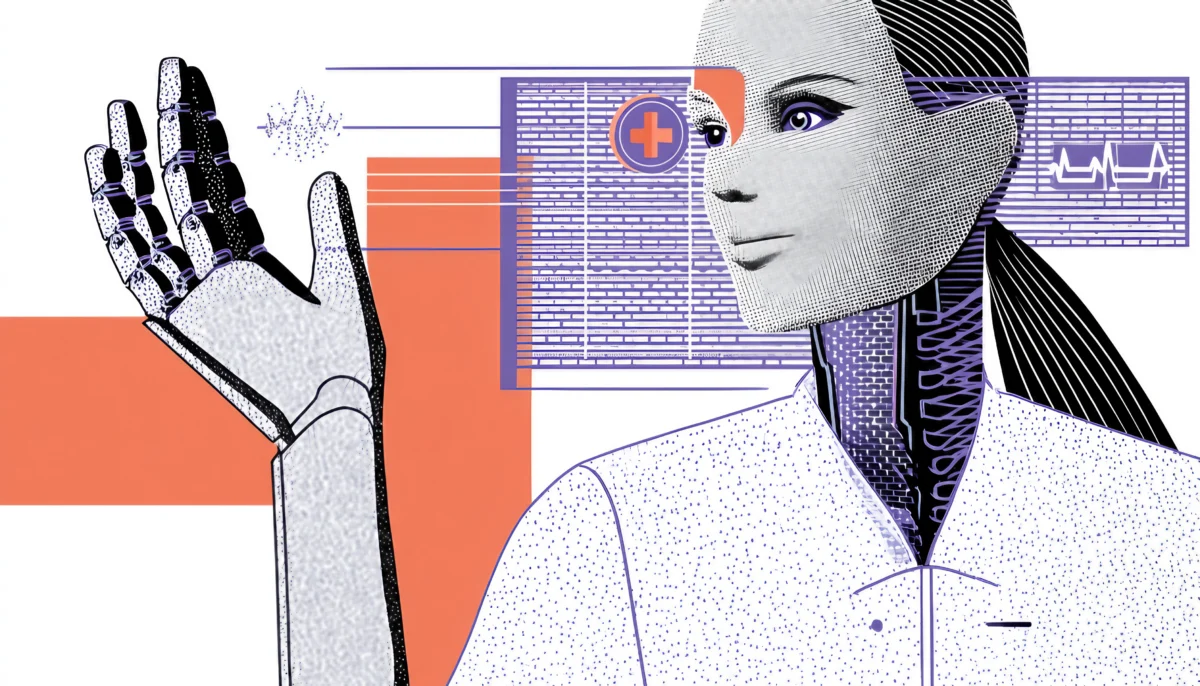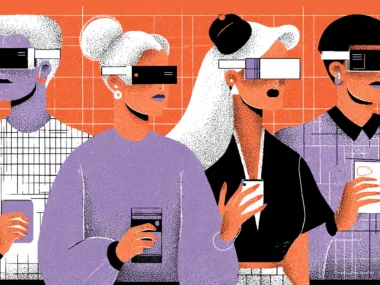Artificial intelligence is not approaching the medical field. It is already here.
Smart algorithms are enabling doctors to identify diseases early, simplify documentation, and create individualized treatment plans that fit every patient in hospitals and research labs all around the world. Once the stuff of science fiction, they are fast becoming the new normal.
However, there are still many misconceptions about the use of artificial intelligence in medicine. While some individuals support the idea of robot doctors as the solution to all modern healthcare issues, others express concerns about their potential replacement of human doctors. The actual truth is somewhere halfway between.
This post pulls the layers back to show how subtly — and powerfully — AI is changing the field of medicine as it exists. Whether your interests are in technology, medicine, or just the future of wellness, you will leave knowing more about how AI is being used, where it shines, and what obstacles lie ahead.
Let’s start right away.
The Rise of AI in Medicine
From Sci-Fi Fantasy to Everyday Reality
When you hear artificial intelligence, do you picture sinister supercomputers or humanoid robots planning the extinction of mankind? Yes, me also. Hollywood has done a fantastic job providing us with a consistent diet of dystopian AI clichés ranging from The Matrix to Terminal. The real artificial intelligence, though, is far less flashy and much more… useful.
Actually, artificial intelligence has surreptitiously entered one of the most holy spheres of our society: medicine.
Before you yell “Skynet!” let us clear the record. AI of today is not about substituting machines for doctors. It has to do with enhancing doctors’ capabilities. Consider it Iron Man’s suit: Tony Stark is still in the mind; AI is his power-up.
AI is helping radiologists spot tumors faster than ever. It’s guiding drug discovery. It’s streamlining data that would take years for a human to comb through. And it’s doing all this right now— not ten years from now, not in a lab somewhere, but in hospitals and clinics around the globe.
The kicker? Most patients don’t even realize it. Is that chatbot booking your next visit or the voice assistant reminding you to take your meds? Indeed, behind the scenes, artificial intelligence is at work. invisible yet so valuable.
Like any strong tool, artificial intelligence in healthcare has certain promise, drawbacks, and punctuation. So let’s break it down and explore the full picture.
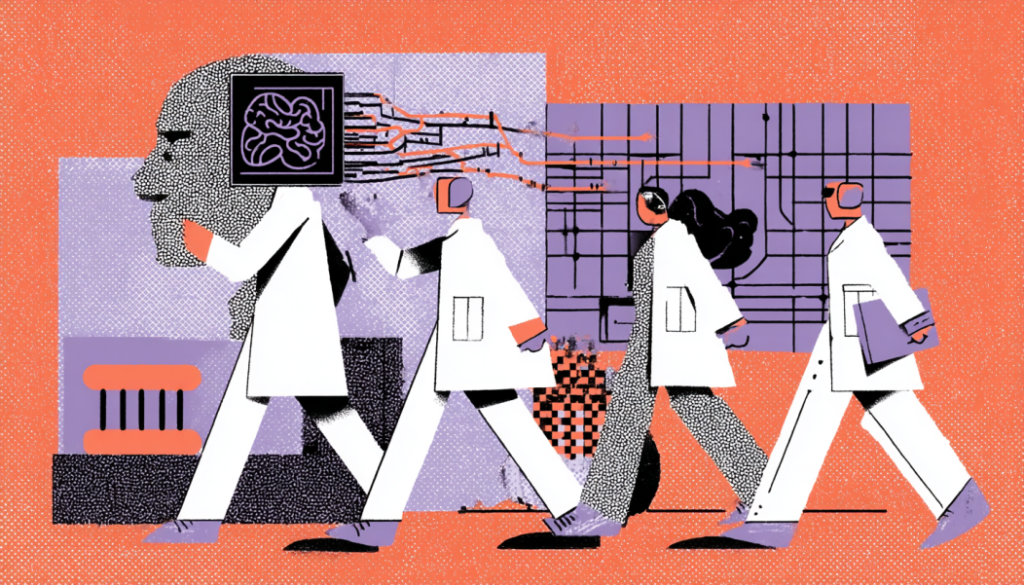
What Is AI, Really?
Demystifying the Buzzword
We often use the term artificial intelligence as if it were a magical tool. But just what is it, really? More importantly, what exactly is it not?
Fundamentally, artificial intelligence is a machine simulation of human intelligence. But here, there is a spectrum. Currently, we understand artificial narrow intelligence (ANI) as a specific type of AI. ANI is hyper-specialized; it can see cancer on a CT scan but cannot pour you a cup of coffee. It’s absolutely dumb outside its lane but excellent at one thing.
Then there is the theoretical idea known as artificial general intelligence (AGI), whereby a machine might reason and think like a human. And last, Artificial Superintelligence (ASI), essentially an all-knowing digital god. Fortunately (or not), we are not yet close to AGI or ASI. We live in ANI territory, which is great for the present status of medicine.
So why all the buzz now? For decades, AI remained merely a theoretical concept. We had the algorithms but not the fuel to power them — aka data and processing muscle. Now, with the explosion of electronic health records and the power of GPUs, AI is finally gaining momentum.
You can think of it like training a puppy. If the puppy is your algorithm, then data is the repetition, praise, and treats it needs to learn tricks. In this case, the “trick” is detecting a heart murmur from a wearable device. Not bad, right?
AI’s Role in Healthcare Today
Where Algorithms Meet Empathy
Let us now translate theory into reality. What specific ways is artificial intelligence transforming modern healthcare? It’s already altering lives, not some hazy futuristic promise.
Data Management: Organization of the Chaos
Healthcare exists as a data jungle. Every test, scan, observation, and blood draw adds to an ocean of knowledge. Doctors often feel overwhelmed by it. AI presents them with a lifeboat.
In seconds, artificial intelligence can label, organize, and link millions of patient records. To enable doctors to make better decisions, systems like IBM Watson Health have scanned 50 million anonymized patient records. Using predictive analytics and machine learning, InterSystems’ HealthShare Unified Care Record assists in provider coordination for eight million patients.
That is revolutionary rather than merely handy. Without artificial intelligence, we expect doctors to navigate through a maze of data using a paper straw.
Diagnostics: Seeing What We Can’t
Radiologists: Your new best friend here.
AI developed by DeepMind has proven better than human radiologists at identifying breast cancer. A neural network trained by UCSF was able to identify Alzheimer’s up to six years before a clinical presentation. That’s six extra years to plan, treat, and adapt.
AI doesn’t get tired. It is not prone to distractions. It simply never stops learning. And it improves with every scan it runs over. Imagine having a never-sleeping, never-second-guessing Sherlock Holmes on call around the clock.
Precision Medicine: Tailored to You
Given no two bodies are unique, why treat every patient the same?
Thanks to artificial intelligence, we are customizing medicine never seen before. To customize treatments for each person, AI can process wearable data, health records, genetic information, and even lifestyle choices.
Before they ever run in a petri dish, pharma startups like Turbine are modeling cellular behavior and simulating drug interactions using artificial intelligence. That speeds things up and is wiser.
Administrative Relief: Let Doctors Be Doctors
Doctors work almost half their day on paperwork. That is awful.
Kara and other artificial intelligence tools are transforming that. Real-time consultation transcriptions by this voice-activated assistant record them in the patient’s chart. At OrthoIndy, this reduced the charting time for after-hours doctors from three hours to almost zero.
It’s like having a hyper-efficient assistant who never sleeps, doesn’t share rumors, and knows exactly where to store every note.
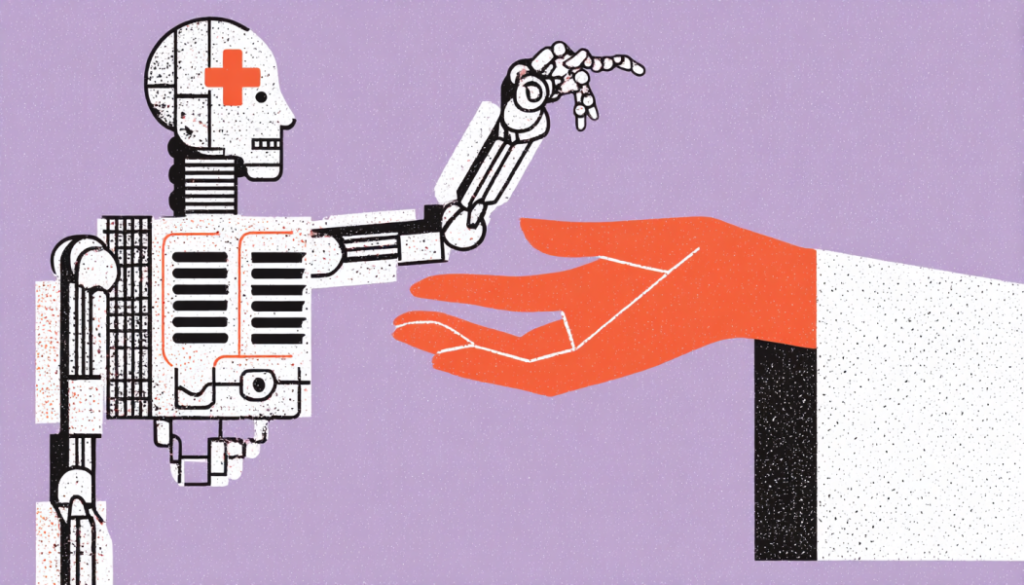
AI in Action: Real-World Case Studies
Proof That It’s More Than Hype
Are you still uncertain about artificial intelligence? Let’s focus on real-world situations in which artificial intelligence is a hero rather than merely a buzz.
Battling Pandemics Before They Hit
2019 saw a Canadian artificial intelligence startup called BlueDot alert Wuhan of a fresh virus. By days, it outperformed the World Health Organization It even foresaw the virus spreading to other towns.
AI was not merely reading news items. It was searching for trends no human could; it was parsing travel data, animal disease reports, and hospital records.
Drug Discovery at Warp Speed
Atomwise used AI to identify potential Ebola treatments in 24 hours. That same process would normally take months or years.
Consider artificial intelligence as a digital microscope endowed with x-ray vision and photographic memory. It never blinks and picks out what we overlook.
Predicting Vision Loss Before It Happens
At Mount Sinai, artificial intelligence is enabling macular degeneration predictions. It examines eye scans and marks those most likely to show symptoms before they start. It is not a reactive treatment but rather a proactive approach to healthcare.
These aren’t fringe cases. These are today’s headlines. And tomorrow? We’re only beginning to explore the possibilities.
Challenges & Ethical Roadblocks
It’s Not All Smooth Sailing
Let’s pump the brakes a bit. For all its magic, AI in healthcare isn’t without flaws.
Bias and Bad Data
If your data is biased, your AI will be too. That’s the straightforward truth. Most medical datasets have historically underrepresented women and minorities. That means algorithms might make faulty assumptions, risking misdiagnoses.
The solution? We need more diverse data, better training, and constant oversight. Think of AI like a brilliant intern. It needs a good mentor and regular check-ins.
Privacy & Consent
Remember when Google’s DeepMind faced controversy for improperly using NHS patient data? Yeah, that happened. Patient data is sacred, and AI must tread carefully.
Regulations like GDPR are a step in the right direction, but we need global standards and more transparency.
Trust & Explainability
Some AI models are black boxes — even their creators don’t fully understand how they make decisions. In healthcare, that’s a problem.
If an AI flags you as high-risk, you deserve to know why. That’s where explainable AI (XAI) comes in — algorithms that can show their work, like a student being asked to prove their math.
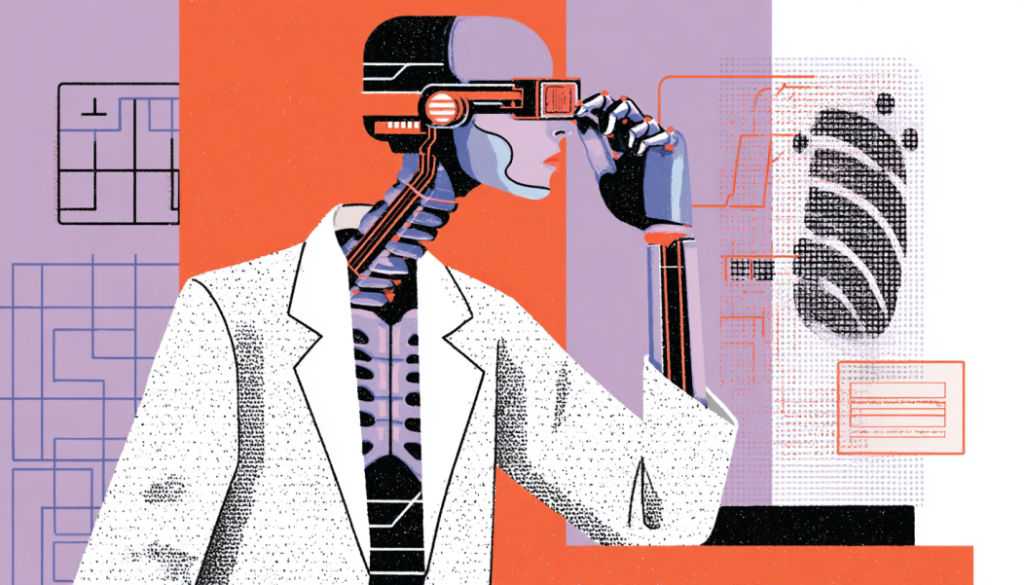
The Future of Healthcare: Man + Machine
A Partnership, Not a Power Struggle
So, what does the future hold? Will AI replace doctors?
Short answer: nope. Long answer: doctors who don’t use AI might be replaced by those who do.
Think about chess. When IBM’s Deep Blue beat Garry Kasparov in 1997, people thought the game was over. But instead of dying, chess evolved. Enter “centaur chess”—teams of humans and machines playing together. The result? The hybrid player outperforms both humans and computers alone.
That’s the future of medicine.
An algorithm won’t replace the physician of tomorrow. They’ll be augmented by one. AI will crunch the numbers. The doctor will connect the dots, interpret emotions, and make the final call.
Healthcare is not just about data. It’s about people. And people need empathy, nuance, and care. AI brings the speed. Humans bring the soul.
AI Isn’t the Future—It’s the Present
Let’s ditch the doomsday stories. AI is already here, and it’s making medicine faster, smarter, and — believe it or not — more human.
From early diagnostics to precision treatment to administrative ease, AI is helping healthcare professionals do what they do best: care. And while we should absolutely remain cautious about its ethical use, we should also be optimistic about its potential.
When machines learn to see what we can’t, and we learn to trust what they find, healthcare will undergo a significant transformation. And that, my friend, is a future worth betting on.




